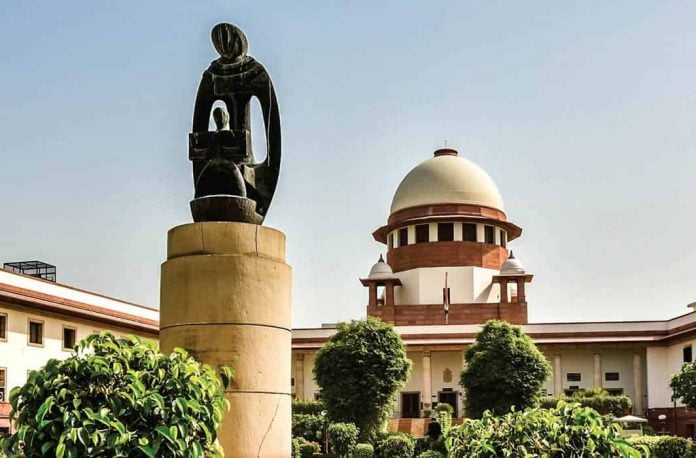New Delhi (ILNS): The Supreme Court has said although Right to Property is not a fundamental right protected under Part III of the Constitution of India, it remains a valuable Constitutional Right. The court made this observation, while directing the Centre to hand over possession of the suit property to the owner after 33 years.
The decision came from the two judge-bench of Justices Indira Banerjee and S. Ravindra Bhat after an appeal was made by the owner of the land (appellants) against a judgment of the Karnataka High Court in which the high court rejected his claim to direct the Union to vacate their lands, leaving it open to the latter to initiate appropriate proceedings for acquisition of certain lands (which belonged to the appellants).
The court said: “It is, therefore, no longer open to the state: in any of its forms (executive, state agencies, or legislature) to claim that the law – or the constitution can be ignored, or complied at its convenience. The decisions of this court, and the history of the right to property show that though its pre-eminence as a fundamental right has been undermined, nevertheless, the essence of the rule of law protects it. The evolving jurisprudence of this court also underlines that it is a valuable right ensuring guaranteed freedoms and economic liberty.
“The phrasing of Article 300-A is determinative and its resemblance with Articles 21 and 265 cannot be overlooked – they, in effect, are a guarantee of the supremacy of the rule of law, no less. To permit the state: whether the Union or any state government to assert that it has an indefinite or overriding right to continue occupying one’s property (bereft of lawful sanction) – whatever be the pretext, is no less than condoning lawlessness. The courts’ role is to act as the guarantor and jealous protector of the people’s liberties: be they assured through the freedoms, and the right to equality and religion or cultural rights under Part III, or the right against deprivation, in any form, through any process other than law. Any condonation by the court is a validation of such unlawful executive behaviour which it then can justify its conduct on the anvil of some loftier purpose, at any future time – aptly described as a “loaded weapon ready for the hand of any authority that can bring forward a plausible claim of an urgent need.”
From the narration of events, it is clear that first, the suit properties were requisitioned in 1963, under the Defence of India Act 1962 (DIA). The amendment to the Requisition Act, which enacted Section 25 in 1968, had the effect of creating a deeming fiction that requisitions under the DIA were deemed to be under the Requisitioning Act. Thereafter, due to successive amendments to the Requisitioning Act, the period of requisition continued; it finally ended in 1987. In late 1972, the predecessor of the appellants felt that the compensation fixed for the suit lands was inadequate and applied for enhancement. The high court, while noticing that the Union’s claim had no merits, nevertheless refused to issue any direction for the release of the suit lands.
Mohan Parasaran, the appellant’s Senior Counsel, relied on the ruling of the court which held, recollecting an earlier judgment in State of Haryana v Mukesh Kumar that the right to property is “not only a constitutional or statutory right, but a human right”.
In response the court said that although the right to property is not a fundamental right protected under Part III of the Constitution of India, it remains a valuable constitutional right and 33 years is a long enough time, even in India, to be kept away from one’s property.
The court has directed the Union to hand back possession of the suit lands to the appellants, within three months. The order said: “Furthermore, it is open to the appellants to seek compensation based on fresh fixation of capital value and recurring annual value, based on the different five- year periods for the last 20 years. Such a claim shall be referred to arbitration, within four weeks of receipt of the reference.”
Read the judgment here;
Judgement_24-Nov-2020-indiraRead Also: Senior Congress leader Ahmed Patel dies at 71, condolence messages pour in across party lines



Comments are closed.